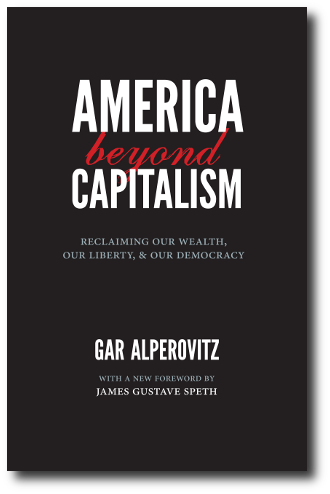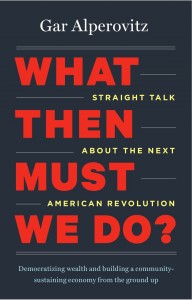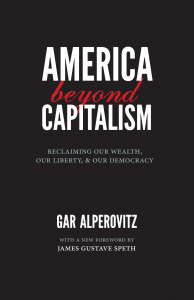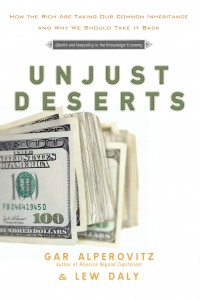Today is the 66th anniversary of the bombing of Hiroshima. Though most Americans are unaware of the fact, increasing numbers of historians now recognize the United States did not need to use the atomic bomb to end the war against Japan in 1945. Moreover, this essential judgment was expressed by the vast majority of top American military leaders in all three services in the years after the war ended: Army, Navy and Army Air Force. Nor was this the judgment of “liberals,” as is sometimes thought today. In fact, leading conservatives were far more outspoken in challenging the decision as unjustified and immoral than American liberals in the years following World War II.
By the summer of 1945 Japan was essentially defeated, its navy at the bottom of the ocean; its air force limited by fuel, equipment, and other shortages; its army facing defeat on all fronts; and its cities subjected to bombing that was all but impossible to challenge. With Germany out of the war, the United States and Britain were about to bring their full power to bear on what was left of the Japanese military. Moreover, the Soviet Union—at this point in time still neutral—was getting ready to attack on the Asian mainland: the Red Army, fresh from victory over Hitler, was poised to strike across the Manchurian border.
Long before the bombings occurred in August 1945—indeed, as early as late April 1945, more than three months before Hiroshima—U.S. intelligence advised that the Japanese were likely to surrender when the Soviet Union entered the war if they were assured that it did not imply national annihilation. An April 29 Joint Intelligence Staff document put it this way: “If at any time the U.S.S.R. should enter the war, all Japanese will realize that absolute defeat is inevitable.”
 AMERICA BEYOND CAPITALISM
AMERICA BEYOND CAPITALISM



 Agenda
Agenda  Posterboard
Posterboard 